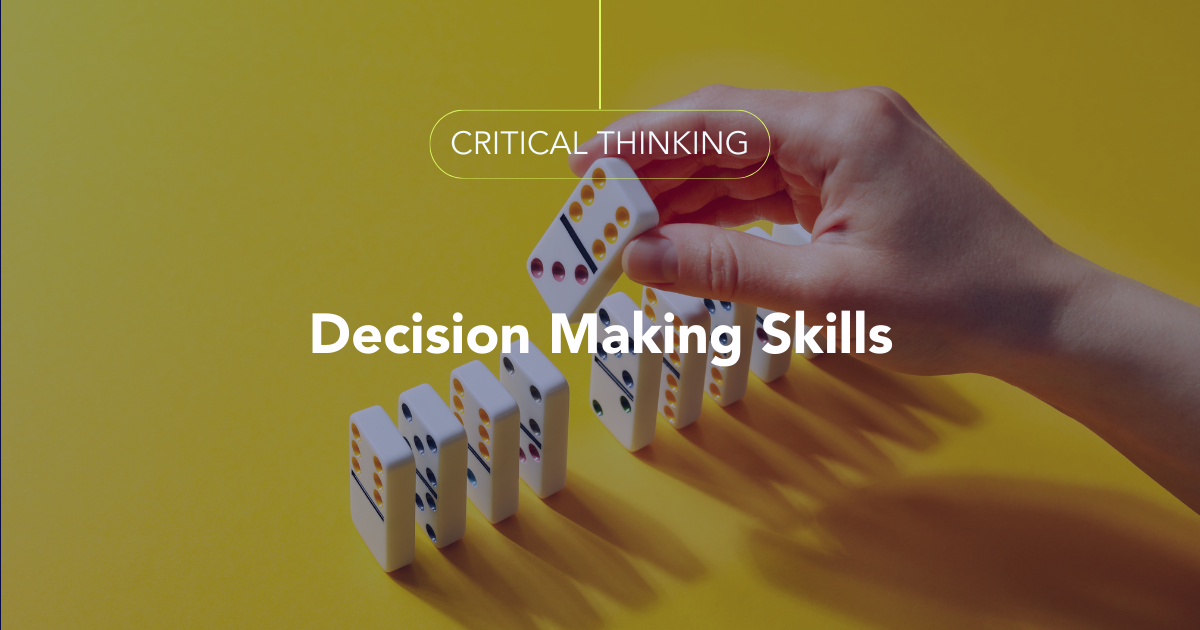Making decisions is an integral part of our routine lives, shaping everything from individual decisions to business strategies. In a realm saturated with a deluge of of information and options, perfecting the skill of smart decision-making has become crucial for attaining success and satisfaction. No matter if you encounter a straightforward option or a complex dilemma, refining your decision-making skills can lead to more successful results and increased assurance in your choices.

This detailed manual aims to provide you with tested strategies and understandings into the psychology behind decision making. You will uncover how to make better decisions under stress, prevent decision burnout, and leverage both intuition and logic. With a emphasis on useful resources and methods, we will explore how to traverse the often difficult terrain of decision making, enabling you to make choices that reflect your values and aspirations. Prepare to change your mindset to decision making and discover the secret to a more resolute and enriching way of living.
Established Methods for Efficient Decision-Making
Sound decision-making is vital for both individual and career achievement. A established technique is to create a well-defined structure for your choices. This involves recognizing your aims, assembling applicable data, and analyzing your alternatives against set criteria. By adhering to a organized approach, you can reduce risk and make more informed decisions. Utilizing effective decision-making -making frameworks, such as a SWOT matrix or decision trees, can help clarify difficult judgments and provide understanding.
A further technique is to include the act of mindfulness into your decision-making approach. By taking a moment to focus your thoughts and feelings, you can gain mental clarity and minimize stress, which allows you to approach decisions in a more neutral way. Being mindful helps you be aware of feelings that may impair your reasoning, leading to better logical judgments. Implementing strategic breaks to ponder can also stop impulsive choices based on impulse or outside influences.
Lastly, accepting the value of gut feelings alongside analytical thinking can enhance your judgment capacity. Gut feelings, often rooted in historical context, can provide valuable insights that analytics alone may miss. By practicing to follow your instincts while also taking into account evidence, you can achieve a holistic viewpoint that combines both reason and intuition. This combination enables you to manage choices with certainty, particularly in ambiguous or stressful contexts.
The Psychology and Science Behind Decision-Making
Understanding the psychological aspects behind decision-making is important for perfecting this ability. Human thinking is often influenced by cognitive biases, which can skew our reasoning and lead to poor decisions. For instance, the availability heuristic causes us to depend on immediate examples that come to mind, potentially overlooking better options. By recognizing these biases, individuals can proactively work to counteract them and make sounder choices.
Furthermore, the impact of emotions cannot be ignored. Emotional intelligence plays a key role in how we approach decisions, as our feelings can both obscure our judgment and provide valuable insights. Recognizing our emotional responses during decision-making can help balance our gut feelings with rational thought. By training ourselves to recognize and control our feelings, we can improve our decision-making process.
Finally, research in behavioral science has revealed that decision-making can also be affected by environmental circumstances. For example, the context in which a decision is made, such as the presence of distractions or the time pressure we experience, can significantly impact our ability to evaluate options appropriately. Creating Browse around this site to considerate decision-making, including reducing stressors and interruptions, can boost our ability to analyze information and achieve better outcomes.
Strategies for Certain Selections in Uncertainty
Making decisions in indeterminate scenarios can be overwhelming, but specific methods can aid you maneuver through indeterminacy with assurance. Initially, accept the idea that uncertainty is a component of existence. In place of pursuing absolute certainty, prioritize gathering pertinent information and assessing the hazards involved. Segregate the decision into more manageable parts, weighing benefits and drawbacks for each component. This approach helps clarify your considerations and allows you to see various outcomes more distinctly.
Another effective strategy is to implement a decision-making framework to assist you. Models like the DECISION model (Articulate the challenge, Establish criteria, Consider alternatives, Identify the best alternative, Create an action plan, Assess the choice) can provide guidance in turbulent moments. Additionally, seeking input from reliable friends or colleagues can help you gain alternative perspectives, aiding in the decision-making process. This collaborative effort can uncover options you might not have considered, leading to more thoughtful selections.
Lastly, cultivate a mindset of adaptability and adaptability. Acknowledge that not every decision will result in the intended outcome, and that is part of the development pathway. Cultivate the habit of reviewing past decisions, both positive and negative, to identify trends and insights gained. Seeing uncertainty as an opportunity for advancement, you can face each decision with a sense of empowerment, ultimately making assured selections even when consequences are unpredictable.
